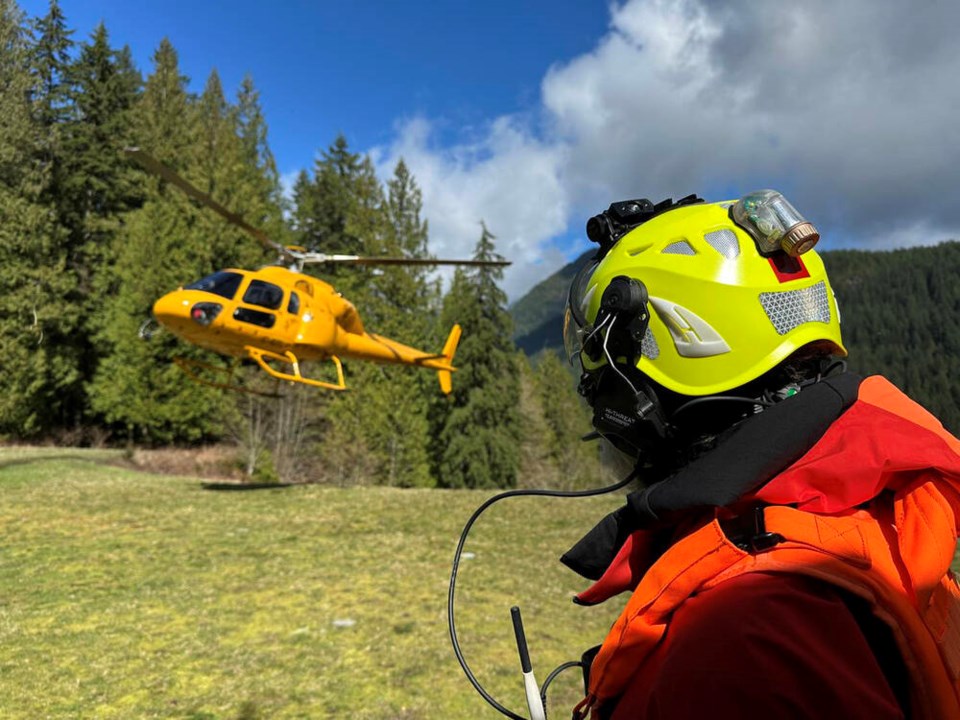North Shore Rescue is crediting a handheld satellite communication device with initiating a rescue for a woman injured deep in the backcountry, Friday.
The team received a call from BC Ambulance Service paramedics just before 2 p.m. reporting a possible broken leg near Norvan Falls – about a two-and-a-half-hour hike into Lynn Headwaters Regional Park.
But unlike most calls for help, this one came in via a Garmin inReach device, which sends a message directly to a GPS satellite that relays it to a military base in Ontario where it is triaged to the appropriate rescue agency.
The device did not allow for two-way communication, however, and not knowing the extent of the injury or exact location, search manager Allan McMordie called in a Talon helicopter and North Shore Rescue’s advanced medical team.
They found the subject, a Vancouver woman in her 50s, in an area called Third Debris Torrent, where she had lost her footing on a large rock and slipped.
Fortunately, the woman’s injury appeared to be more of a sprain than a break, McMordie said, but without a rescue, there’s no way she’d have made it out on her own.
“She would have had to rely on other people to carry her out. She was not able to walk,” he said.
The team fit her into a splint and flew her back to their Bone Creek search and rescue station.
The woman was well prepared with extra clothing and the weather conditions were decent on Friday but, McMordie said, most people injured in Lynn Headwaters have several miserable hours of waiting in the elements before help arrives.
Almost always when there’s an injury near Norvan Falls, rescuers don’t find out about it until another hiker makes the seven-kilometre journey back to the Lynn Headwaters parking lot where they can get cell reception and call 911.
“You lose cell coverage very quickly when you head off from the parking lot,” he said. “So, it’s sketchy right off the bat.”
McMordie said it’s the first time in his memory that a satellite device mobilized a rescue.
As the spring hiking season begins, McMordie said it is important for people heading into the trails to be well equipped with proper footwear and the “10 essentials” – extra food and water, a light, a signalling device, extra clothes, a knife, shelter, a first aid kit, a lighter or matches, along with navigation and communication tools, like a smartphone or the GPS unit that triggered Friday’s call.



